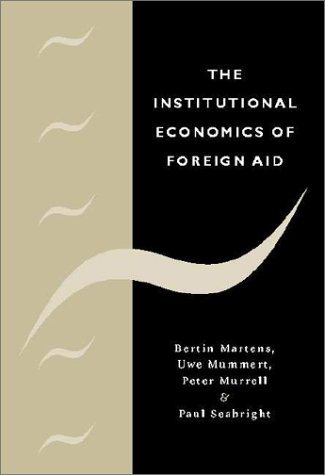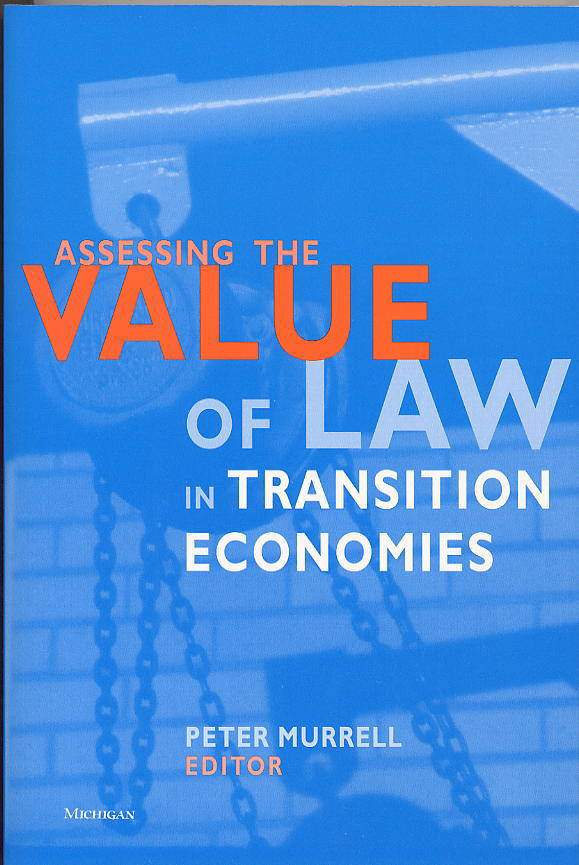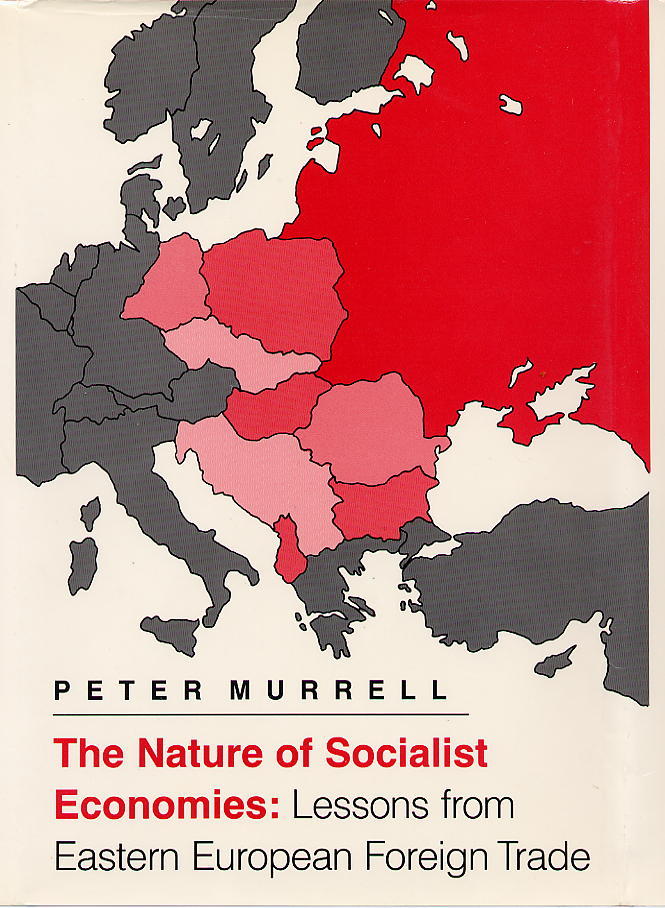
Bertin Martens, Uwe Mummert, Peter Murrell, Paul Seabright
Cambridge University Press, 2002
This book analyzes the institutions--incentives and constraints--that guide the behavior of persons involved in the implementation of aid programs. While traditional performance studies tend to focus almost exclusively on policies and institutions in recipient countries, this book looks at incentives in the entire chain of organizations involved in the delivery of foreign aid, from donor governments and agencies to consultants, experts and other intermediaries. The book examines incentives inside donor agencies, the interaction of subcontractors with recipient organizations, incentives inside recipient country institutions, and biases in aid performance monitoring systems.

Peter Murrell, Editor
University of Michigan Press, 2001
Does law play a role in the economies that are moving from Soviet-style socialism to market capitalism? The essays in this book examine that question, providing a vivid picture of how the new institutions of capitalism affect the lives of business people, legal practitioners, investors, and bureaucrats. They analyze the determinants of successful institutional reform, suggesting that law can influence economic behavior even in inhospitable environments. Contributors ask: What are the microeconomic mechanisms by which law contributes to the activities of economic agents? How do the characteristics of economic agents affect their ability to use the law? Which spheres of the economy are most affected by institutional reforms and where does law fail? What are the preconditions for effective legal and institutional reforms? Which types of political processes produce a workable system of economic legislation? The focus throughout is on the analysis of the individual economic agent who is subject to the new institutions.

Peter Murrell
Princeton University Press, 1990
One of Choice's Outstanding Academic Titles for 1991
Available in the Princeton Legacy Library
What were the sources of the well-known differences in the performance of capitalist and socialist economic systems? This book argued that the Schumpeterian model has far more power to answer this question than did neoclassical theory. The latter focused on the absence of a price system and the inability of a centralized system to allocate resources efficiently, while the Schumpeterian model emphasized the rigidity of organizations and policies in socialist economies and the lack of mechanisms to create new institutions or to identify and to foster the growth of the most efficient organizations. The predictions of these two models were matched against data summarizing foreign trade performance and the Schumpeterian model was clearly superior. Combining international trade theory and econometric techniques, the book presented new methods of comparative economic analysis.